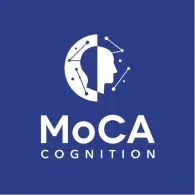If you suspect you have Mild Cognitive Impairment (MCI) or are experiencing cognitive changes that are concerning, it’s important to seek medical evaluation and guidance from a healthcare professional. Start by contacting your primary care physician or a healthcare provider with expertise in neurology or geriatric medicine. Here are the steps to follow:
-
Primary care provider
Your first point of contact should be your primary care provider. Schedule an appointment to discuss your cognitive concerns and any changes in memory, thinking, or other cognitive functions. They can conduct an initial evaluation and may refer you to a specialist if needed.
-
Specialist evaluation
Depending on your physician’s assessment, they may refer you to a specialist, such as a neurologist, geriatrician, or a neuropsychologist. These specialists have expertise in diagnosing and managing cognitive conditions, including MCI.
-
Comprehensive assessment
Your primary care provider or specialist will conduct a comprehensive assessment, which may include a detailed medical history, cognitive testing, neurological examination, and, if necessary, brain imaging (e.g., MRI or CT scans) to rule out other underlying causes of cognitive changes.
-
Cognitive testing
Neuropsychological testing is a common component of the evaluation. It assesses various aspects of cognitive function, including memory, language, problem-solving, and attention.
-
Diagnosis
Based on the evaluation, the healthcare professional will provide a diagnosis, which may include a determination of whether you have MCI and, if so, whether it is amnestic or non-amnestic.
-
Discussion and recommendations
If you receive a diagnosis of MCI, your healthcare provider will discuss the implications, potential causes, and management options. They may also provide guidance on lifestyle changes, interventions, and follow-up assessments.
-
Care and support
Depending on the diagnosis and individual needs, your healthcare provider may recommend interventions, lifestyle changes, and support strategies to help manage MCI. These can include cognitive rehabilitation, medication, and addressing any underlying conditions contributing to cognitive changes.
It’s important to reach out to a healthcare professional as soon as you have concerns about cognitive changes, as early intervention and diagnosis can be valuable in managing MCI and addressing potential underlying causes. Keep in mind that not all memory problems are indicative of MCI or dementia, and there may be other treatable factors contributing to cognitive changes. A healthcare provider will help determine the appropriate steps for your specific situation.
